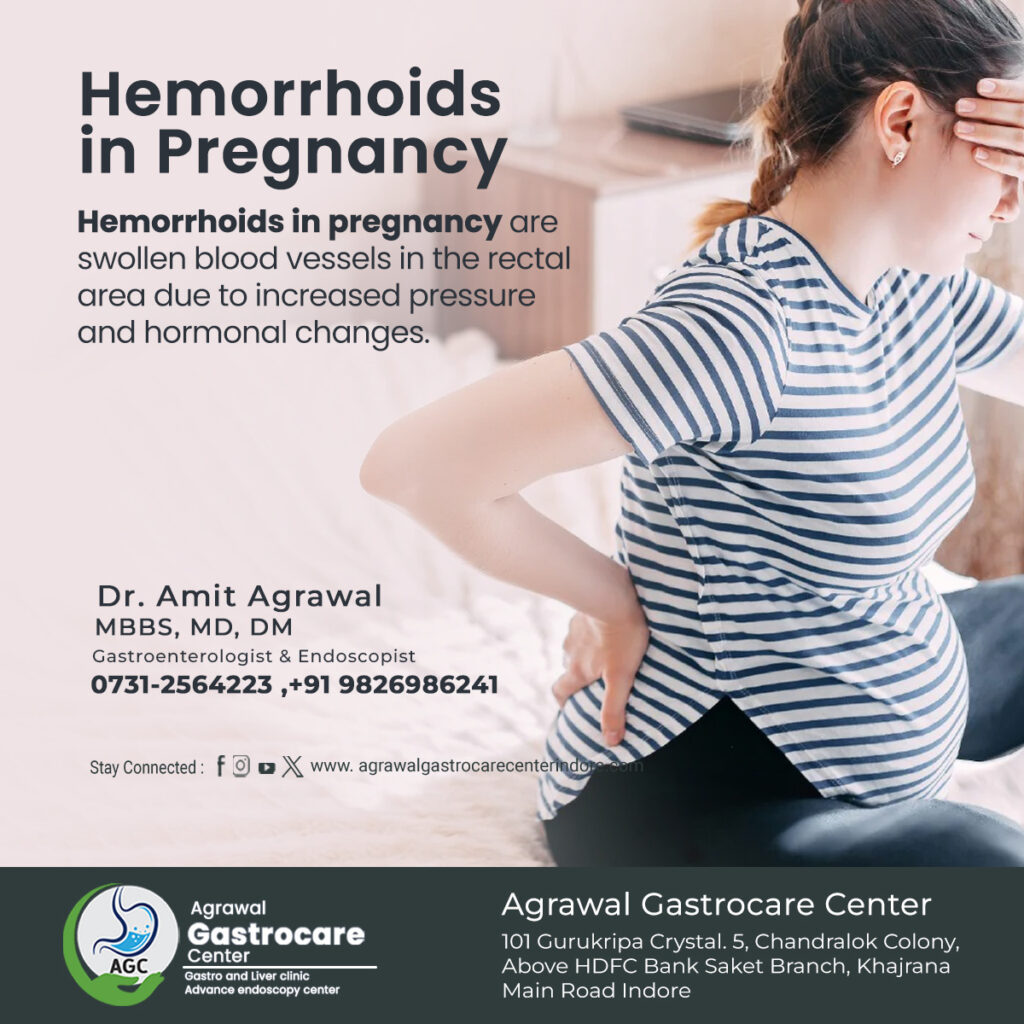Hemorrhoids in Pregnancy, Symptoms, Causes, Treatment
Hemorrhoids in Pregnancy
Hemorrhoids during pregnancy are swollen veins in the rectal area that can cause discomfort and pain. The increased pressure on blood vessels in the pelvic region, mainly due to the growing uterus, can lead to the development of hemorrhoids.
Hemorrhoids in pregnancy are diagnosed through a physical examination of the rectal area by a doctor.
If hemorrhoids become severe or persistent, it’s essential to consult a doctor for further diagnosis and treatment options, which may include interventions to manage discomfort and promote healing.

Symptoms of Hemorrhoids in Pregnancy
Hemorrhoids during pregnancy can cause various symptoms. These include itching and discomfort around the anal region, and pain, or tenderness during bowel movements.
Pregnant women may feel a lump or swelling near the anus. Constipation, a common issue during pregnancy, can worsen these symptoms.
Hormonal changes and the pressure of the growing uterus contribute to the development of hemorrhoids. If symptoms persist or worsen, seeking advice from a doctor is crucial for proper diagnosis and management.
Causes of Hemorrhoids in Pregnancy
Hemorrhoids during pregnancy have several causes:
- The growing uterus exerts pressure on pelvic blood vessels, leading to swollen rectal veins.
- Common in pregnancy, constipation results in straining during bowel movements, increasing pelvic pressure.
- Insufficient exercise can lead to poor bowel function and exacerbate constipation, a key factor in hemorrhoid development.
- Inadequate fiber in the diet contributes to constipation, making it harder to pass stools comfortably.
Treatment of Hemorrhoids in Pregnancy
- Dietary Changes: Increase fiber intake through fruits, vegetables, and whole grains to soften stools and ease bowel movements.
- Hydration: Drink plenty of water to prevent constipation and promote softer stools.
- Good Bathroom Habits: Avoid straining during bowel movements and use gentle, fragrance-free wipes.
- Warm Baths (Sitz Baths): Soaking in warm water can alleviate discomfort and promote healing.
- Topical Creams or Ointments: Some prescribed creams may help reduce inflammation and soothe itching.
- Supplements: In some cases, doctors may recommend fiber supplements or stool softeners.
- Physical Activity: Regular exercise can improve bowel function and reduce the risk of constipation.
Dr. Amit Agarwal
Director & Gastroenterologist Consultant
Agarwal Gastrocare Center Indore


